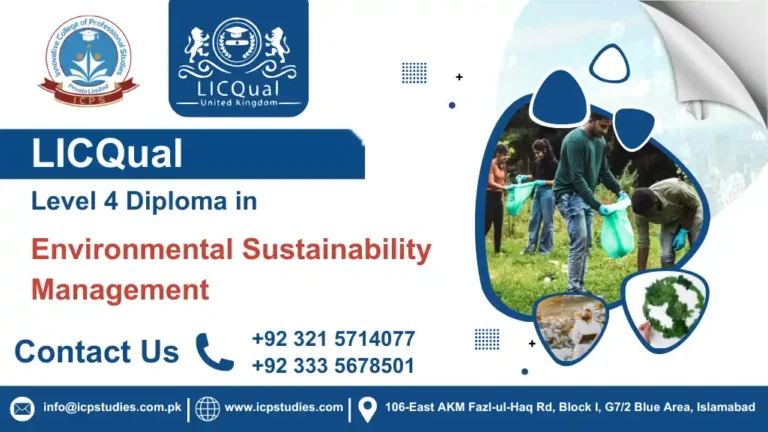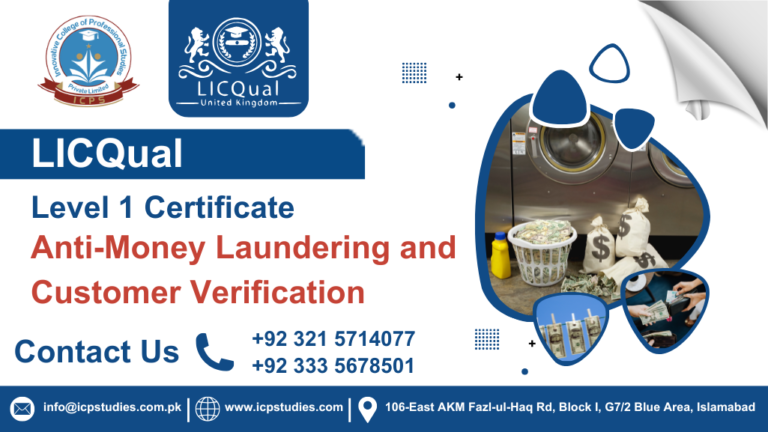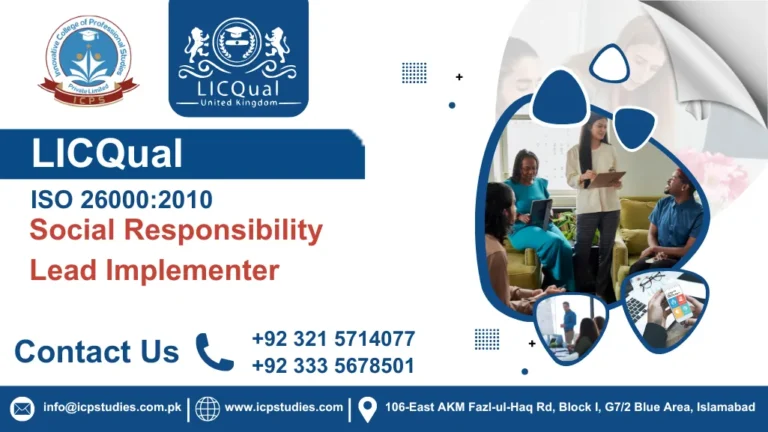Auditing is a cornerstone of effective management systems, helping organisations ensure compliance, drive continuous improvement, and meet quality standards. For professionals who wish to become proficient in auditing management systems, the LICQual ISO 19011:2018 Guidelines for Auditing Management System Lead Auditor course offers comprehensive training on the principles, procedures, and best practices necessary for conducting effective management system audits. This course is based on ISO 19011:2018, the globally recognised standard providing guidelines for auditing management systems.
The LICQual ISO 19011:2018 Guidelines for Auditing Management System Lead Auditor course is an in-depth programme that equips professionals with the knowledge and practical skills required to lead and conduct audits of management systems. The course covers the full scope of ISO 19011:2018, ensuring participants can confidently plan, execute, and report on audits of management systems for organisations seeking ISO certification or improvement.
The LICQual ISO 19011:2018 Guidelines for Auditing Management System Lead Auditor course is a crucial qualification for anyone involved in auditing, quality management, or regulatory compliance. With a focus on effective auditing techniques, risk-based thinking, and continuous improvement, this course equips professionals with the tools they need to conduct successful audits and support organisations in achieving high standards of management system performance.
All About LICQual ISO 19011:2018 Guidelines for Auditing Management System Lead Auditor
Course Overview
ISO 19011:2018 provides guidance for auditing management systems, including the evaluation of processes and procedures that meet the requirements of standards such as ISO 9001 (Quality Management), ISO 14001 (Environmental Management), and ISO 45001 (Occupational Health and Safety). It outlines the principles and practices for auditing, offering clear guidance on the management of audit programmes, the competence of auditors, and the audit process itself.
The guidelines ensure that audits are conducted effectively, ethically, and with transparency, helping organisations enhance their operational performance, manage risk, and achieve regulatory compliance. Understanding ISO 19011:2018 is essential for anyone involved in the auditing of management systems.
Study Units
- Introduction to ISO 19011:2018 and Auditing Principles
- Auditing Process and Planning
- Conducting Audits
- Identifying Non-Conformities and Reporting Findings
- Auditor Competencies and Team Leadership
- Follow-Up Audits and Continuous Improvement
To ensure that participants are well-prepared to successfully complete the LICQual ISO 19011:2018 Guidelines for Auditing Management System Lead Auditor course, the following entry requirements apply:
Minimum Age
Participants must be at least 21 years of age at the time of enrolment.
Educational Background
A minimum of a Level 3 qualification (such as A-levels or an equivalent recognised qualification) is required. A background in management, quality assurance, or a related technical field is advantageous but not mandatory.
Work Experience
It is recommended that candidates have a minimum of two years of professional experience in quality management, auditing, or a related field. Experience in conducting audits, managing quality systems, or working in regulated industries is beneficial for those wishing to maximise their learning during the course.
Language Proficiency
Since the course is conducted in English, participants must demonstrate adequate proficiency in the English language. Non-native English speakers must have a minimum IELTS score of 5.5 or equivalent to ensure they can engage with course materials and participate in discussions and assessments effectively.
The LICQual ISO 19011:2018 Guidelines for Auditing Management System Lead Auditor course is ideal for professionals involved in quality management, auditing, and regulatory compliance. This course is designed for:
- Internal and External Auditors
Professionals who are responsible for auditing management systems within their organisations or for clients as third-party auditors. - Quality Managers and Coordinators
Individuals overseeing the implementation and management of quality management systems and processes within an organisation. - Compliance Officers
Those ensuring that organisations adhere to industry standards, regulations, and quality assurance requirements. - Consultants and Trainers
Professionals who provide advisory services or training related to auditing, management systems, or quality management. - Accreditation Body Personnel
Individuals working with accreditation organisations, assessing compliance and performance of management systems across industries. - Risk and Governance Professionals
Those involved in managing risk, governance, and ensuring that management systems are effective in mitigating business risks and achieving objectives. - Professionals Seeking Career Advancement
Individuals aiming to enhance their skills in auditing management systems and achieve a globally recognised certification to progress in quality management or auditing fields.
This course is suitable for anyone looking to gain the expertise necessary to lead audits, improve organisational practices, and ensure compliance with internationally recognised management system standards.
Learning Outcomes
Introduction to ISO 19011:2018 and Auditing Principles
- Understand the scope and structure of ISO 19011:2018 and its application to auditing management systems
- Comprehend the core principles of auditing, including independence, objectivity, and evidence-based findings
- Recognise the importance of auditing in ensuring the effectiveness of management systems and organisational compliance
- Gain an understanding of the general approach and methods for auditing management systems across various industries
Auditing Process and Planning
- Learn how to plan audits effectively, including defining objectives, scope, and criteria for the audit
- Develop skills in establishing audit schedules, selecting audit teams, and allocating resources
- Understand how to assess the context of the organisation and its management system when planning an audit
- Gain proficiency in preparing audit plans that align with ISO 19011:2018 requirements
Conducting Audits
- Acquire the skills to carry out audits by reviewing documentation, interviewing personnel, and observing processes
- Understand the process of gathering evidence and evaluating compliance with management system standards
- Learn how to manage audit meetings, ensuring effective communication between auditors and auditees
- Develop the ability to adapt auditing approaches based on the organisation’s size, complexity, and scope of operations
Identifying Non-Conformities and Reporting Findings
- Learn how to identify and classify non-conformities during audits, assessing their significance and impact
- Understand the process of documenting findings clearly, accurately, and professionally in audit reports
- Develop the ability to communicate non-conformities to stakeholders in a constructive and solution-focused manner
- Gain an understanding of how to recommend corrective actions and corrective action plans for identified non-conformities
Auditor Competencies and Team Leadership
- Recognise the key competencies required for effective auditing, including technical knowledge, communication, and analytical skills
- Learn how to assess the competencies of audit team members and ensure effective team collaboration during audits
- Develop leadership skills in managing audit teams, ensuring the audit process runs smoothly and effectively
- Understand the importance of ongoing development of auditor competencies to maintain high standards of auditing practice
Follow-Up Audits and Continuous Improvement
- Understand the importance of follow-up audits to ensure the implementation of corrective actions and the resolution of non-conformities
- Learn how to assess the effectiveness of corrective actions and determine whether the management system has improved
- Develop skills in evaluating the continuous improvement processes within an organisation’s management system
- Gain insights into how audits contribute to long-term improvements in organisational performance and compliance with standards
These learning outcomes will equip participants with the necessary skills and knowledge to conduct comprehensive audits, drive improvements, and lead audit teams effectively in alignment with ISO 19011:2018 guidelines.
FAQs LICQual ISO 19011:2018 Guidelines for Auditing Management System Lead Auditor






